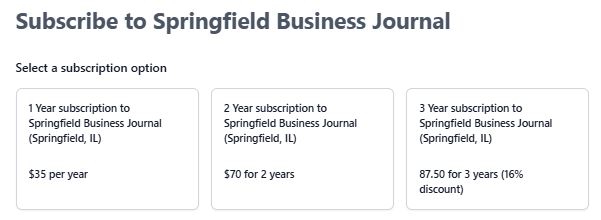Back in April, the executive director of the American Nurses
Association Illinois, Susan Swart, told my associate Isabel Miller that
advanced practice registered nurses are losing their jobs because of ongoing
and severe state licensing delays.
Swart said some of those nurses are waiting “a year to 18 months”
to get their licenses from the Illinois Department of Financial and
Professional Regulation.
“The nurses apply for [jobs] because they’re accepting this
position and [licensing] is taking so long, they’re losing positions,” Swart
said.
And it’s not just nurses having problems getting state licenses.
Licensed Social Workers are not required to take a state exam to
obtain their state licenses. They self-report background issues, so they aren’t
required to undergo state background checks. Their only real licensing
requirement is to show they’ve obtained a master’s degree in Social Work.
And yet, the Illinois Department of Financial and Professional
Regulation still takes three to four months to process license applications for
LSWs, according to Kyle Hillman with the Illinois chapter of the National
Association of Social Workers. The applications are “the easiest thing to
review,” Hillman said. It’s basically a rubber-stamp operation.
Needless to say, these delays are completely unacceptable. The
General Assembly passed legislation last year to give the IDFPR some breathing
room on licensing renewals so it could focus its efforts on first-time
licenses. And yet, here we (still) are.
In response to Hillman, an IDFPR spokesperson revealed that the
agency has only eight workers processing license applications for 80
health-related professions.
That’s an astoundingly low number of employees for the immense
task they’re charged with tackling.
Eight? For 80 health-related professions? What the heck?
There are thousands upon untold thousands of people in licensed
health-related professions here. No wonder people have to wait months on end
for their license approvals.
Up until that response, IDFPR would only say the agency was
“under-staffed” when groups like the NASW tried to find out how many employees
it had assigned to process applications. Now those groups know, and they’re not
happy.
The IDFPR also previously refused to tell the NASW if it was
separately processing the no-brainer Licensed Social Workers applications to
speed things along. But the agency’s statement admitted the social worker apps
were in the big pile along with all the other health-related professions. That
makes no sense. Take a few days and get the easy stuff out of the way, for
crying out loud.
Gov. JB Pritzker has talked a good game about workforce
development. But it does no good to help train and attract nurses, social
workers and a host of other much-needed professionals if his licensing agency
can’t even figure out how to deal with fruit that is literally sitting on the
ground, let alone the low-hanging variety.
The IDFPR spokesperson claimed the Licensed Social Worker
processing time is down 60% from eight months ago. But it’s still a
ridiculously long wait.
Pritzker’s proposed state budget includes money “for the
procurement of a new licensing system” for IDFPR, but that project is way
behind schedule.
Last year, the legislature gave IDFPR three months to build a new
computer software system and then have that system up and running in three
months. Well, the department is now at its deadline to have the system running,
but it hasn’t yet even finished the procurement process to buy the software.
And the governor’s proposed budget would only increase IDFPR’s
headcount by a mere 28 people across the department’s four divisions (after
significant hiring this fiscal year).
Meanwhile, a February report by the Illinois Economic Policy
Institute’s The Illinois Update revealed that more than half of Illinois
registered nurses are over the age of 55, and a third say they plan to leave
the profession within 12 months. As a result, the report claimed that Illinois
“is projected to see an RN shortage of 15,000 by 2025.”
Last week, the General Assembly passed a bill (HB5047) which would
extend the time period that license-pending practical nurses and
license-pending registered nurses could work to six months, up from three,
before their employment is terminated. But even that may not be enough time for
IDFPR.
According to the governor’s proposed budget, the number of
licensed professionals outside of cannabis is expected to be 1.35 million
people by the end of next fiscal year. But that relies on the state getting its
act together.
This article appears in 2024 Women of Influence.


